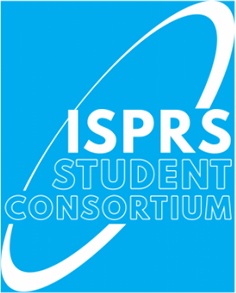The ISPRS SC Webinar Series
ISPRS WG III/3 (Active Microwave Remote Sensing) Webinar Series

This webinar is the part of the webinar series organised by the ISPRS WG III/3 (Active Microwave Remote Sensing) with the technical support of the ISPRS Student Consortium (ISPRS SC). It is organised on the second Wednesday of every months.

Program Details:
Date: 12 November, 2025
Time: 12:00 - 13:00 (GMT+0)
Title: Bridging Paradigms in SAR Image Restoration – Supervised and Self-Supervised Approaches
Speaker: Francescopaolo Sica, University of the Bundeswehr Munich
Moderator: Füsun Balik Sanli
Abstract:
Synthetic Aperture Radar (SAR) imagery is invaluable for remote sensing applications, offering reliable observations under all-weather, day-night conditions. However, the inherent speckle noise in SAR data presents a significant challenge for interpretation and processing, necessitating advanced restoration methods.
This webinar will delve into the evolving landscape of SAR image restoration, contrasting the strengths and limitations of supervised and self-supervised approaches. Supervised methods, which rely on labeled training data, achieve remarkable precision under ideal conditions but often struggle with robustness when real-world data diverges from training assumptions. Self-supervised learning, by contrast, leverages the natural properties of noisy data to forgo labeled datasets, enabling adaptable and domain-agnostic solutions.
The talk will explore cutting-edge advancements in both paradigms, including supervised techniques alongside self-supervised ones. The discussion will highlight their respective roles in SAR despeckling and InSAR parameter estimation, examining how they perform across various operational scenarios.
The keynote will conclude by envisioning hybrid approaches that integrate labeled and unlabeled data, aiming to bridge the gap between precision and adaptability. These frameworks promise to largely impact SAR image restoration, fostering more robust, scalable, and efficient methodologies for remote sensing applications.
Speaker's Bio:
Francescopaolo Sica (Senior Member, IEEE) received the Laurea (M.S.) degree (summa cum laude) in Telecommunications Engineering and the Dr. Ing. (Ph.D.) degree in Information Engineering from the University of Naples Federico II, Italy, in 2012 and 2016, respectively. Since 2022, he is deputy head of the Chair of Earth Observation at the Faculty of Aerospace Engineering of the University of the Bundeswehr Munich, Germany. With a distinguished career from 2016 to 2022 as a postdoctoral researcher at the German Aerospace Center (DLR) and the European Space Agency (ESA), Dr Sica has contributed significantly to the advancement of Synthetic Aperture Radar (SAR) technologies. His research efforts have covered a wide range of activities, from mission design to advanced SAR signal and image processing techniques to the practical deployment of SAR applications. Dr. Sica is currently pursuing his habilitation in signal and image processing, specializing in harnessing the power of deep learning methods to improve SAR data processing and analysis. Dr. Sica is co-chair of the Benchmarking Working Group of the IEEE-GRSS Image Analysis and Data Fusion Technical Committee (IADF) and Key Personnel of the ISPRS Active Microwave Sensing Working Group. He is a regular reviewer for international journals and an active organizer of various international summer schools.

